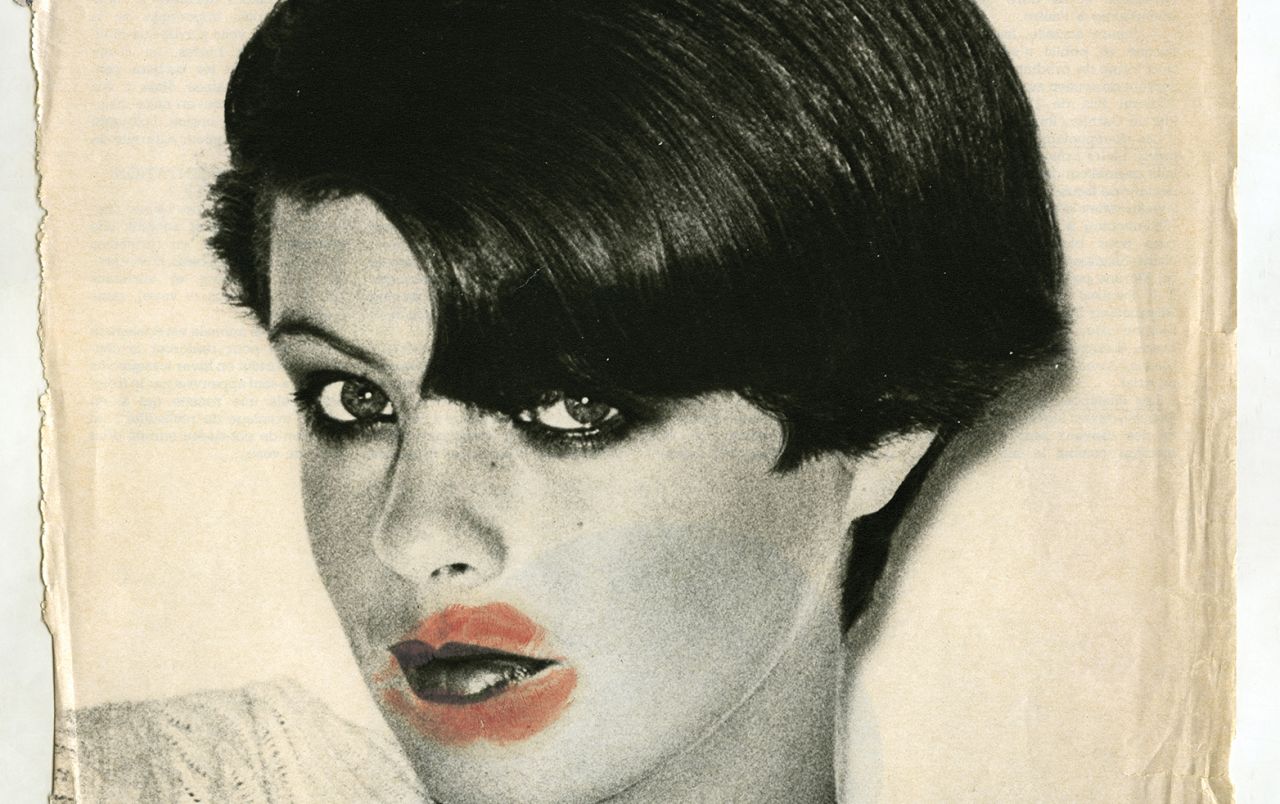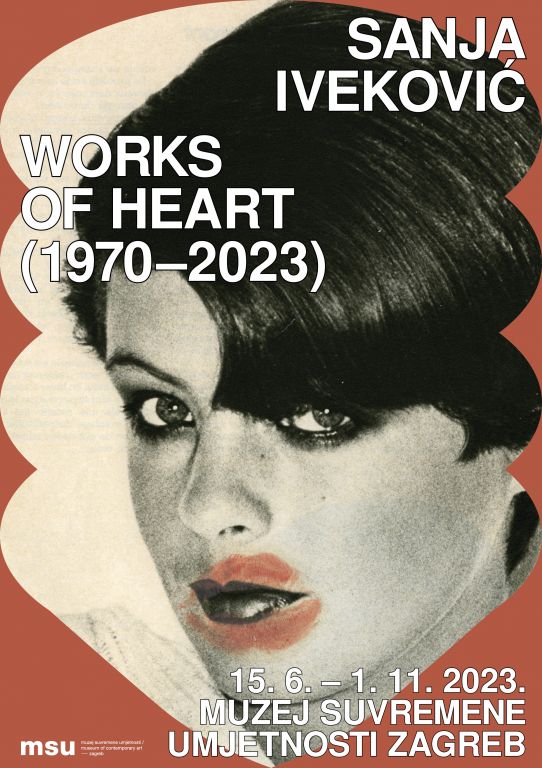The retrospective and the archive are in dialogue and share a narrative activated by the exhibition’s title, which uses the metaphor of the heart to present Iveković’s work as a generator of various encounters, relationships and actions. The Zagreb Museum itself acts as a space of encounter, since the archive is structured around Iveković’s early work and her first big solo show, Documents 1949-1976, presented in 1976 at the Zagreb Gallery of Contemporary Art, precursor to the present-day Museum. Building on the methodology of the 1976 exhibition, which purported to “document” the artist’s personal history while in fact constructing a critical history of the present, the archive frames Iveković’s early work as a document which speaks to both the past and the present.
Like many Iveković’s exhibitions, Works of Heart is named after one of Iveković’s own works, presented at the eponymous exhibition at the Josip Račić Gallery in Zagreb in 2001. Iveković herself took this title from a February 1994 issue of New York Times, which placed a photograph and a report of the civilian massacre at the open-air market in Sarajevo next to a Valentine’s Day advertisement for a necklace with a heart-shaped pendant. Iveković created two separate posters out of the war photograph and the advertisement, thus amplifying the newspaper’s juxtaposition of the female model advertising the necklace and the wounded woman illustrating the massacre report. The heart-shaped pendant, as well as the closed eyes of women in both photographs, point to one possible interpretation of the exhibition title, which underlines Iveković’s dedication to deconstructing stereotypical representations of women – in this case, the woman as the embodiment of emotion and sentimental motives.
Beyond pointing to the stereotype of the female attitude towards the world, the heart is also a metaphor for art understood as a kind of machine that responds to and produces a socio-political context. Over the course of the past fifty years, in both socialist Yugoslavia and the contemporary global-capitalist reality, Sanja Iveković’s practice has evolved through a feminist articulation of various engaged positions towards the socio-political reality. The heart in the title of this exhibition also reminds us that our society needs more solidarity at a time when one crisis follows another.
To fight for a better world, we also must preserve the memory of past emancipation struggles, which is another important aspect of Iveković’s practice and a strong focus of the exhibition, which includes the production of the Zagreb version of Iveković’s landmark work Lady Rosa of Luxembourg (2001), under the new title, Pregnant Memory. Dedicated to heroines of the Second World War anti-fascist struggle, this work builds on other earlier projects by Iveković, such as Gen XX (1997-2001). The artist’s mother, Nera Šafarić-Iveković, was one of the protagonists of the anti-fascist movement, for which she was arrested and imprisoned in Auschwitz. An important part of this exhibition is the artist’s book consisting of her mother’s poems, photographs, and documents. The book’s title, named after one poem, Jao si ga onome tko se boji duhova (Woe Betide Anyone Who Is Afraid of Ghosts) points to yet another aspect of the exhibition, associated with loss, disappearance, and non-representatived, erased histories.
Sanja Iveković’s art is as alive as her heart; it wants to leave traces in reality and carries a performative power that strives for gender equality, anti-fascism, emancipation of collective memory, and solidarity.
Sanja Iveković was born in 1949 in Zagreb. She graduated from the Academy of Fine Arts in Zagreb in 1970, when she began to exhibit her artwork. Iveković has exhibited her work at many national and international shows (Paris Biennale, Sao Paolo Biennale, Manifesta, Documenta, Liverpool Biennale, Istanbul Biennale, Prague Biennale and others), and her video works and video installations have been shown at numerous international video festivals (Ljubljana, Berlin, Geneva, Paris, Montreal, Los Angeles, Locarno, Tokyo, the Hague, Osnabrück, Bonn, Dessau, etc). In 1979, 1990 and 1994, she won the Canadian government fellowship for visiting foreign artists, and in 1994 she received the American Arts Link Fellowship. In 2005 and 2006, Iveković resided in Berlin as a German government fellowship (DAAD) recipient. She had retrospective exhibitions at Galerie am Taxispalais, Innsbruck (2001), nGbK, Berlin (2001), Kölnischer Kunstverein, Cologne (2006), Göteborgs Konsthall, Göteborg (2006), Fundació Antoni Tàpies, Barcelona (2007). Her works are in the collections of many museums including: MOMA, New York; Musée National d'art Modern Centre Pompidou, Paris; Contemporary Art Museum, Kumamoto; Generali Foundation, Vienna; Tate Modern, London. In addition to creating art, Iveković also engages in female activism and is a founder and member of several women’s NGOs in Croatia.
Retrospective
Curator: Zdenka Badovinac
Coordinator: Martina Munivrana
Curatorial and Production Assistant: Petra Cegur
Exhibition architecture: Ana Martina Bakić
Visual identity, catalogue design and graphic design: Rafaela Dražić
Archive
Curator: Ivana Bago
Curatorial and Production Assistant: Renata Filčić
Exhibition architecture: Zbyněk Baladrán
Exhibition design: Ivana Bago, Zbyněk Baladrán
Graphic design: Sanja Kuzmanović


